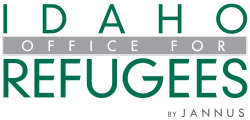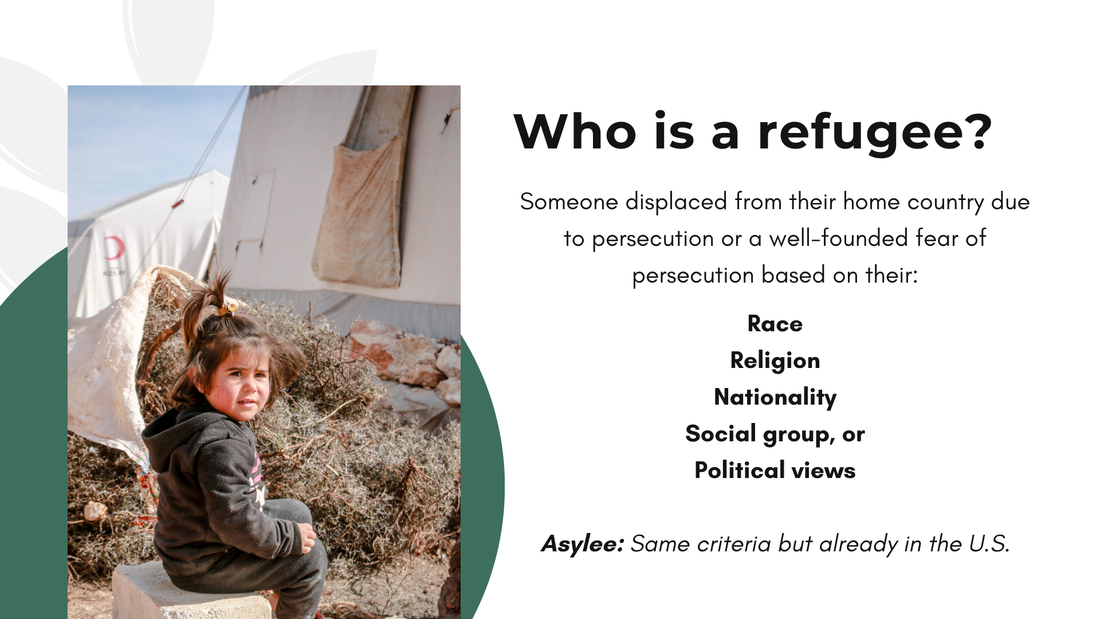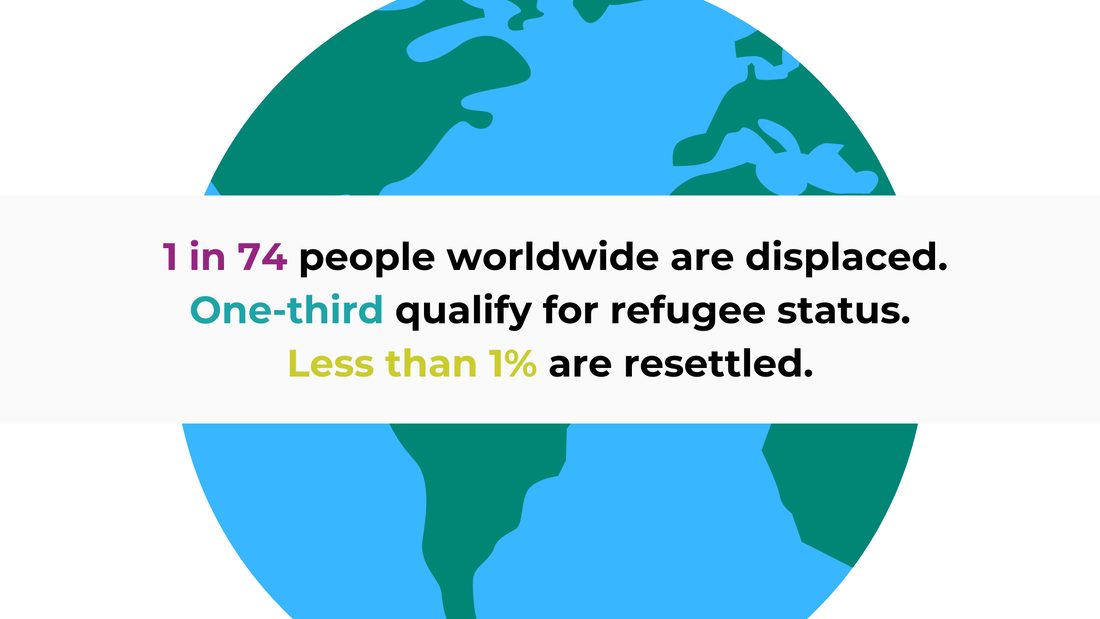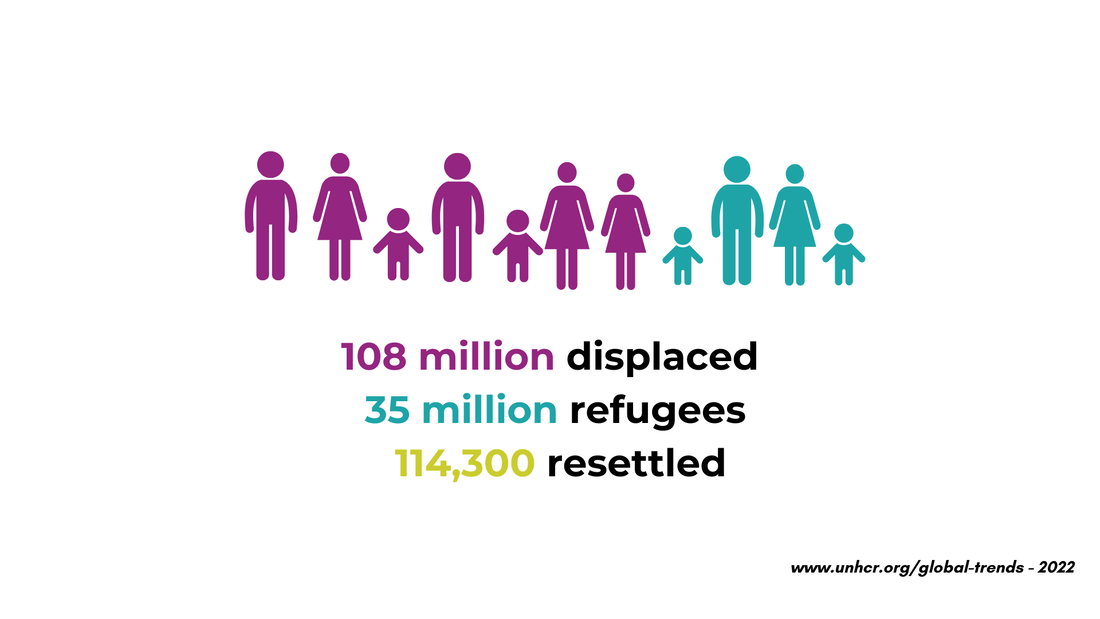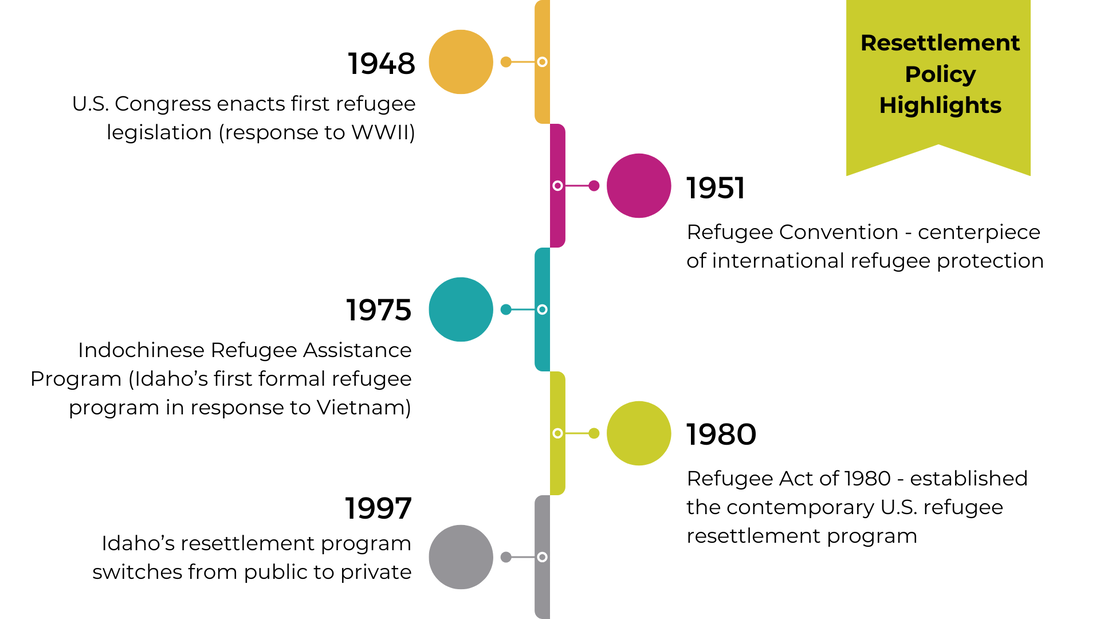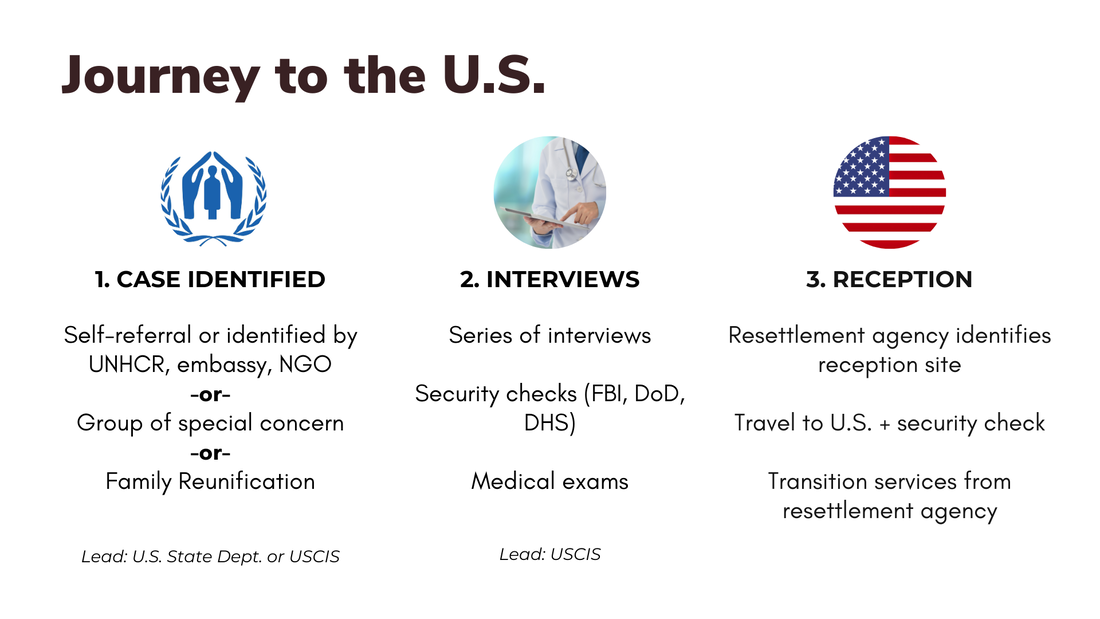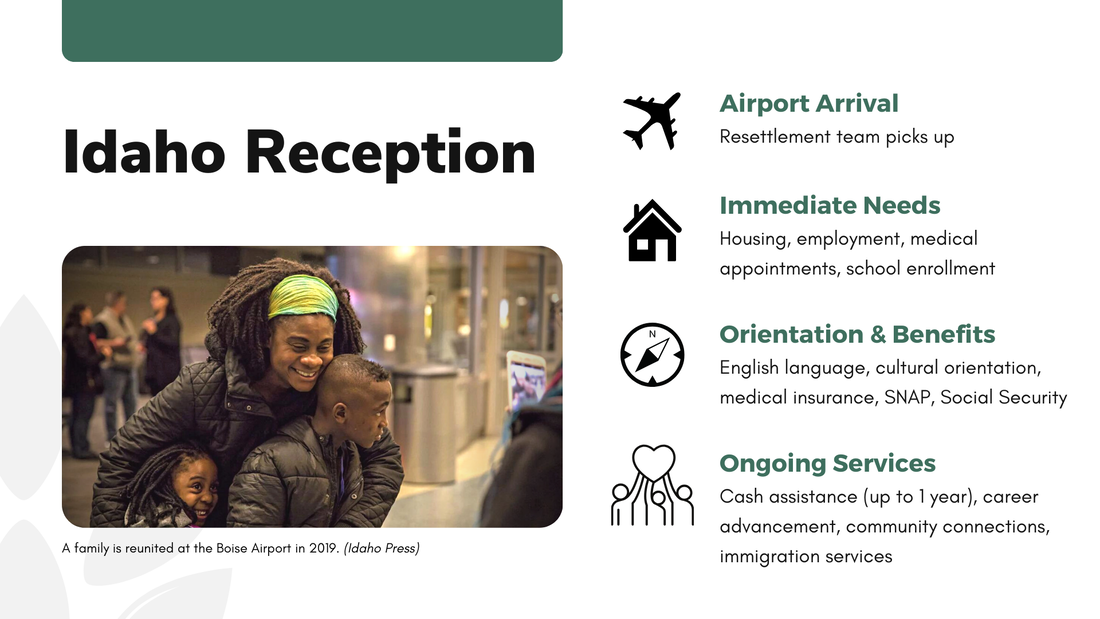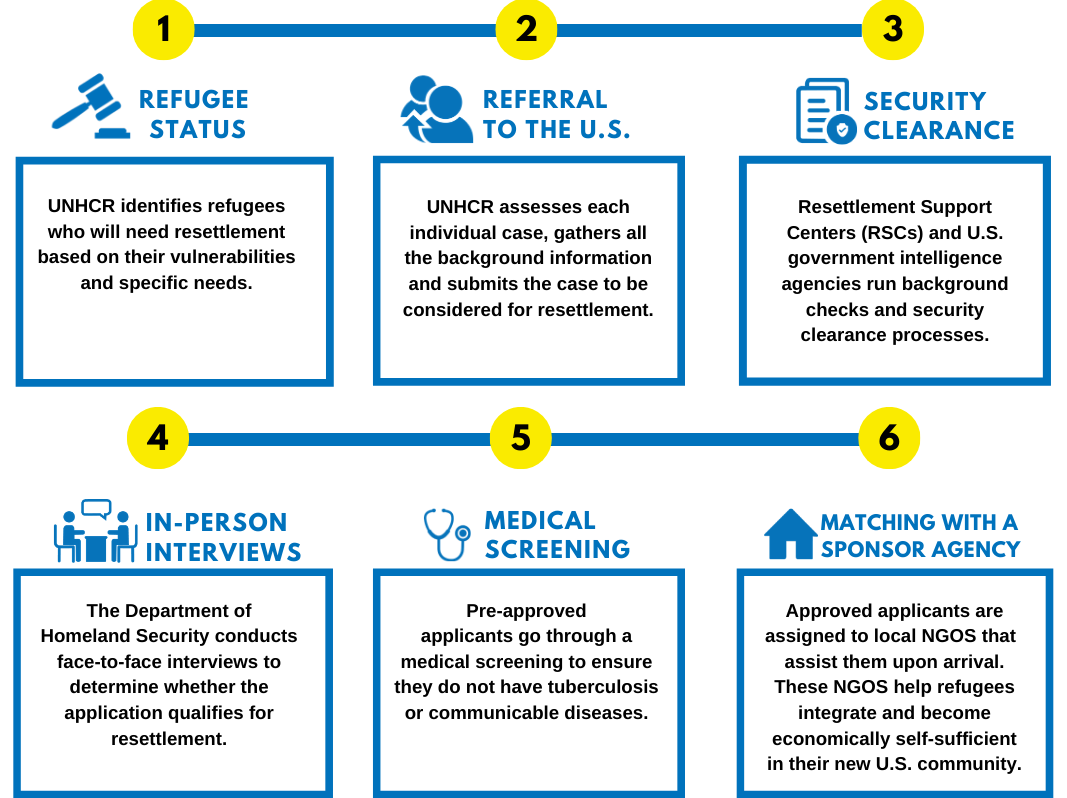Resettlement
History of Resettlement
The U.S. has a proud history of admitting refugees of special humanitarian concern into the country. Following the admission of over 250,000 displaced Europeans in the wake of World War II, the first refugee legislation enacted by the U.S. Congress was the Displaced Persons Act of 1948. This legislation provided for the admission of an additional 400,000 displaced Europeans.
Later laws provided for admission of persons fleeing Communist regimes from Hungary, Poland, Yugoslavia, Korea and China, and Cuba. Most of these waves of refugees were assisted by private ethnic and religious organizations in the U.S. which formed the basis for the public/private role of U.S. refugee resettlement today.
In 1975 the U.S. resettled hundreds of thousands of Indochinese refugees through an ad hoc Refugee Task Force with temporary funding.
This experience prompted Congress to pass the Refugee Act of 1980, which incorporated the United Nations definition of “refugee” and standardized the resettlement services for all refugees admitted to the U.S.
The Refugee Act provides the legal basis for today’s U.S. Refugee Admissions Program and is administered by the Bureau of Population, Refugees, and Migration (BPRM) of the Department of State in conjunction with the Office of Refugee Resettlement in the Department of Health and Human Services (HHS) and offices in the Department of Homeland Security (DHS).
The 9 U.S. Refugee Resettlement Agencies help newly arrived refugees settle into local communities. These organizations include: Church World Service, Ethiopian Community Development Council, Episcopal Migration Ministries, Hebrew Immigrant Aid Society, International Rescue Committee, Lutheran Immigration and Refugee Service, U.S. Committee for Refugees and Immigrants, United States Conference of Catholic Bishops/Migration and Refugee Services, and World Relief. These organizations are also known as Voluntary Agencies (volags) or Resettlement Agencies.
..
Each year, the President of the United States, after consulting with Congress and the appropriate agencies, determines the designated nationalities and processing priorities for refugee resettlement for the upcoming year. The President also sets annual ceilings on the total number of refugees who may enter the U.S. from each region of the world.
Since 1975, the U.S. has resettled over 3 million refugees, with annual admissions figures ranging from a high of 207,000 in 1980 to a low of 11,411 in 2021.
The Resettlement Process
From Church World Service (for original PDF, click here)
1. Refugees flee their homeland: Because of a well-founded fear of persecution, a refugee will flee his/her home country.
2. Refugees Seek Protection: A refugee seeks protection from the United Nations High Commissioner for Refugees (UNHCR). Protection can come from one of three possible solutions:
3. Access to the US Refugee Program: A refugee can access the U.S. Refugee Program through an application process that includes referrals. The referrals can come from:
4. Permanent Resettlement into a Third Country: If permanent resettlement is deemed a possibility, the refugee is interviewed in his/her current place of residence by U.S.Citizenship and Immigration Services (USCIS) to see if he/she will be granted permission to enter the U.S. Refugee Program.
5. Approval: If a refugee is approved by USCIS, the case is allocated to one of 9 domestic resettlement agencies, of which Church World Service is one.
6. Resettlement: The refugee’s case is assured to a local office in the U.S., where help is found for the refugee. Assurance is based on an analysis of available resources in a given community to meet the needs of specific refugees.
Screening Processes
Security: For a detailed list of steps involved in the security screening process, please access this PDF, created by the International Rescue Committee.
Medical: For a list of pre-departure and post-arrival medical screening information, visit the Refugee Health Guidelines page of the Centers for Disease Control and Prevention.
1. Refugees flee their homeland: Because of a well-founded fear of persecution, a refugee will flee his/her home country.
2. Refugees Seek Protection: A refugee seeks protection from the United Nations High Commissioner for Refugees (UNHCR). Protection can come from one of three possible solutions:
- Return to the home country when homeland is deemed safe.
- Settle into the country to which they fled.
- Resettle permanently into a third country.
3. Access to the US Refugee Program: A refugee can access the U.S. Refugee Program through an application process that includes referrals. The referrals can come from:
- An individual referral from the UNHCR or any U.S. Embassy (P-1 cases).
- A group referral where a person claims to be a member of a group of special humanitarian concern to the U.S. (P-2cases).
- A referral from a relative in the U.S. seeking to reunite with his or her family member overseas (P-3 cases). Only certain nationalities are identified each fiscal year and only parents, spouses and unmarried children under the age of 21 are eligible for a family referral.
4. Permanent Resettlement into a Third Country: If permanent resettlement is deemed a possibility, the refugee is interviewed in his/her current place of residence by U.S.Citizenship and Immigration Services (USCIS) to see if he/she will be granted permission to enter the U.S. Refugee Program.
5. Approval: If a refugee is approved by USCIS, the case is allocated to one of 9 domestic resettlement agencies, of which Church World Service is one.
6. Resettlement: The refugee’s case is assured to a local office in the U.S., where help is found for the refugee. Assurance is based on an analysis of available resources in a given community to meet the needs of specific refugees.
Screening Processes
Security: For a detailed list of steps involved in the security screening process, please access this PDF, created by the International Rescue Committee.
Medical: For a list of pre-departure and post-arrival medical screening information, visit the Refugee Health Guidelines page of the Centers for Disease Control and Prevention.
Steps to Resettlement
Watch this video from the Secretary of Homeland Security to see exactly what a potential refugee goes through to resettle in the U.S.:
Idaho Office for refugees |
|
